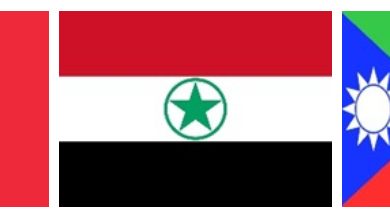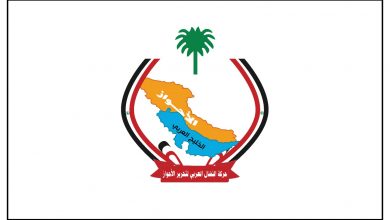A careful reading into Ahwaz labor protests
Ahwazna
After the Mullahs of the Persian state became certain that the US sanctions will inevitably hit them, it was prompted to boast of its previous experiences with the embargo in order to mitigate the enormity of the situation. It was keen to repeat the same performance with its ridiculous details, raising the slogans it has been selling to its supporters in Yemen, Syria, Iraq and Lebanon such as Death to America, Death to Israel and other slogans launched for domestic consumption. These slogans are aimed at nothing but mesmerizing the public and creating a smokescreen. We don’t believe that this regime is not aware of the fact that its old ploys will go nowhere at a time where our world is seeing massive shifts in terms of alliances, strategies and even concepts.
The regime is well aware of this. And it is aware that its tools have become ridiculous, irritating and outmoded. But it seems, through these efforts and repeated slogans, to send several messages to the home front in hopes of defusing the discontent at it since the home front is prepared and poised for explosion in the regime’s face. The economic situation, even before imposing the latest packages of sanctions, was continuously deteriorating. The regime has been pursuing austerity since paying off the bill of its foreign adventures and destructive wars and supporting its terror militias is, to it, more important than improving the lives of citizens.
Corruption in all its forms, especially the financial one, is rampant across the apparatuses of the Persian state as a permanent resident. It is being sponsored by the religious and judicial authorities.
This regime, whose government is headed by a man classified as a reformist, which means that he is less radical and violent than the conservatives. But we don’t see the faintest difference between the two blocs. He does have neither political nor economic vision that could enable him to overcome sanctions’ impact on the man of the street. He is only prepared to respond to citizens’ reactions using force, only excessive force. Therefore, he is following in the footsteps of his partners in power who excelled in using force to repress any revolt demanding reforms and improving the deteriorated living conditions.
The most challenging events for the Persian occupiers throughout 2018 were the Ahwazi protests. This movement, which has stopped only to rejuvenate its momentum and continuation, constituted a solid ground when it comes to incubating the strongest labor protests in the history of Ahwaz.
The significance of these protests lies in the fact that they coincide with imposing a harsher package of US sanctions on the Mullahs which has become more repressive and insolent. This coincidence undoubtedly will impact the Persian state’s ability to bar any economic collapse which is accelerating noticeably, which poses a clear threat to the future of this state.
Given its economic resources, Ahwaz has a special trajectory. It somewhat indicates the reaction towards the sanctions. However, it has the decisive role in activating these sanctions. Workers, who are the backbone of civil life in the Persian state, have the ability to impose their own agenda. This agenda goes beyond administrative reforms, demanding the fulfillment of political and national rights if workers use their capacities best. It is premature if we think that the crisis of the Ahwazi workers is confined to the direct relationship between bosses and workers or the balance between production and rights.
The problem is far deeper than this outlook. The political factor could not be separated from the crisis. The imbalanced relationship between the Persian state, which occupies Ahwaz, and the Ahwazi citizen, has a strong presence in shaping this crisis and its trajectory.
Since it annexed Ahwaz in 1925, the Ahwazi state has never paid attention to Ahwaz. It only considered Ahwaz its backyard, where it can plunder its oil and agricultural resources and deprive its residents of them, turning them into the poorest people who live on the richest soil.
Due to the massive oil resources God bestowed on the lands of Ahwaz, the industries depending on oil production are concentrated in Ahwaz. But the percentage of the Ahwazi workers in this field is minimal. Moreover, unemployment in Ahwaz hits nearly 50 percent.
While the Ahwazis are living in dire conditions on their own soil, we find the state is encouraging the Persian settlers to live in the Ahwazi cities, granted a prestigious job and a comfortable lodging. The percentage of the Ahwazis working in factories and services’ institutions are far lower than that of Persians. Despite being few, they also do not get their rights in full. They are always threatened to be fired. The recent protests revealed that the protesting workers have not received their payments for months. Pensioners, who spent their lives in work, had their pensions suspended.
Therefore, the crisis of the Ahwazi workers is not related to the economic situation or embargo. But it is the product of a deliberate policy that has been pursued since decades by the occupiers in order to get the Ahwazi people to bow. Through a comprehensive outlook, we will find the case to be a one of the people and homeland. The Ahwazi people declared it plainly through its avowed aims nourished by the blood of its martyrs: It is a revolution till victory is achieved.
The Arab Struggle Movement for the Liberation of Ahwaz.
05-01-2019



